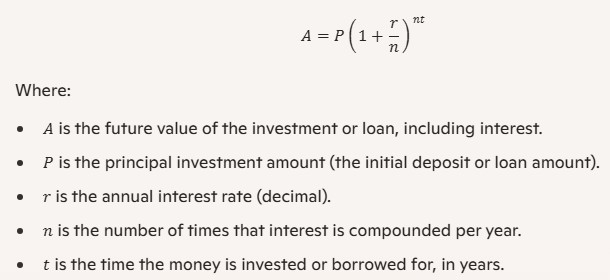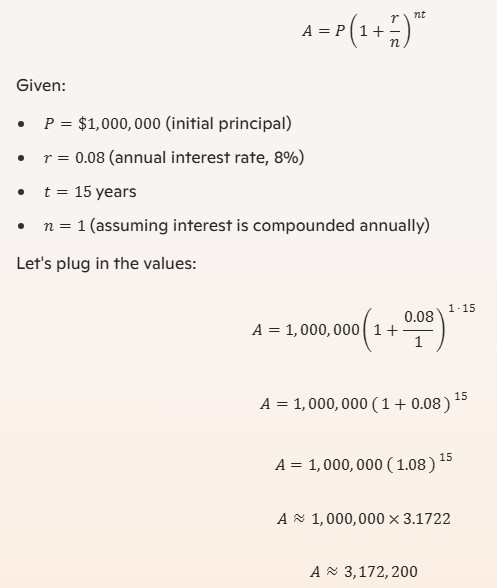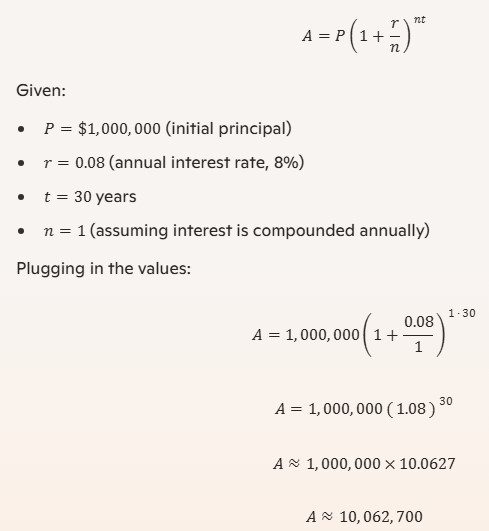One of the most memorable things I learned in business school is that TIME is the secret sauce to building wealth.
A host of factors such as:
- Your Starting Point
- Income Growth
- Financial Literacy
- Expense Management
- Tax Planning
- Risk Management
certainly influence wealth creation. The power of time, however, is often overlooked because most people have little interest in getting rich slowly. I also suspect many investors fail to grasp the powerful effect of compounding wealth over time because we can neither feel or see it.
The Importance Of Time
Understanding the the role of time is essential to intelligent investing.
Investments can perform exceptionally well or exceptionally poorly if analyzed over a very short time frame. Quite often, performance over the short-term is no indication of our skill as results are likely primarily determined by randomness.
If we expand the time frame over which we analyze our investment returns, however, randomness diminishes and results are more a function of skill than of luck.
To determine the importance of time, we can plug values into the compound interest formula.

An easier process, however, involves entering various metrics (ie. compound frequency, interest variance range (optional), and the value of an initial investment) in the US Securities and Exchange Commission calculator. The following reflect the results using the values I arbitrarily selected.


An investor with the discipline to remain invested for 30 years results in an investment value that is more than 3 times that for an investor who opted to invest for only 15 years.
Time is the secret sauce to building wealth!
How NOT To Build Wealth
How not to build wealth comes down to employing some, or all, of the following:
- overspend on non-essential items and luxury goods;
- set aside little money for emergencies or retirement;
- incur high-interest debt;
- have no clear financial plan or budget;
- have little regard to the risk aspect of an investment;
- make large impulsive purchases;
- ignore financial education; and
- live paycheck to paycheck.
Far too often, people have the attitude that there is no point in living below their means for the purpose of investing if they are never going to enjoy their money.
Quite often, this sentiment is expressed by people trying to impress people they don’t know with money they don’t have. They create and perpetuate the cycle of having to work out of necessity.
Final Thoughts
Most people are hard-wired to think about the short-term. If an investment underperforms in the short-term, many investors often exit their position without determining how a company is likely to perform over the long-term. It is, however, only our long-term investment returns that will determine our success in building wealth.
Many of the world’s wealthiest people have created their fortunes by owning and holding shares in great businesses for decades. In so doing, their wealth is given the opportunity to compound on a before-tax basis.
Having said this, it is most certainly not my place to tell anyone neither how to live nor what to do with their money. I merely want to stress the importance of:
- putting time on your side when building your wealth;
- avoiding investments and investment strategies with little concern given to your risk tolerance; and
- controlling emotions.
Never place yourself in a position where you need to start all over again. The world already has enough people worrying about outliving their money.
Having the independence to decide how you want to live and what you want to do with your wealth is true freedom. Employ the secret sauce to building wealth and start investing from a very early age (preferably your late teens/early twenties).
I wish you much success on your journey to financial freedom!
Note: Please send any feedback, corrections, or questions to finfreejourney@gmail.com.
Disclaimer: I do not know your circumstances and do not provide individualized advice or recommendations. I encourage you to make investment decisions by conducting your research and due diligence. Consult your financial advisor about your specific situation.


